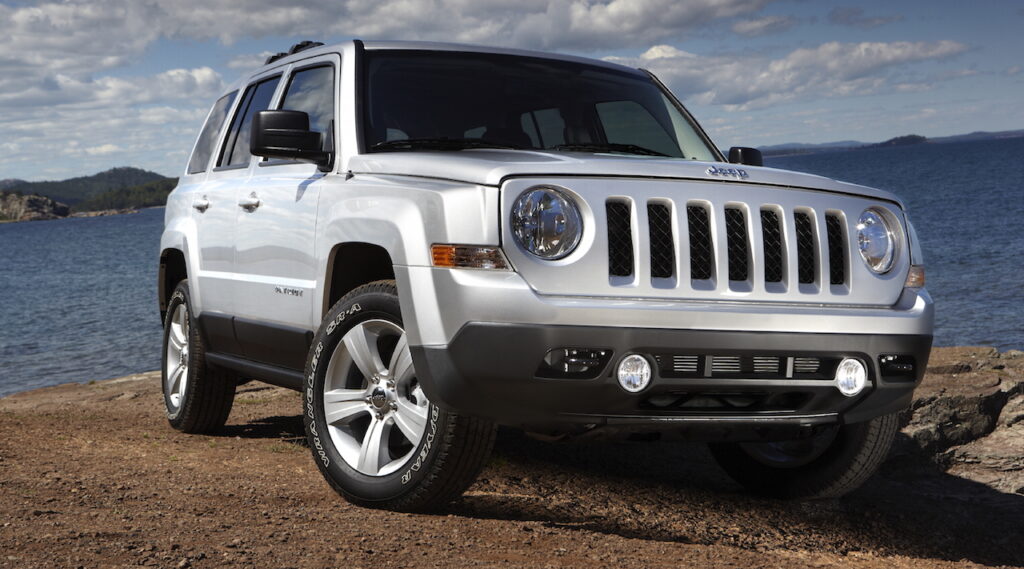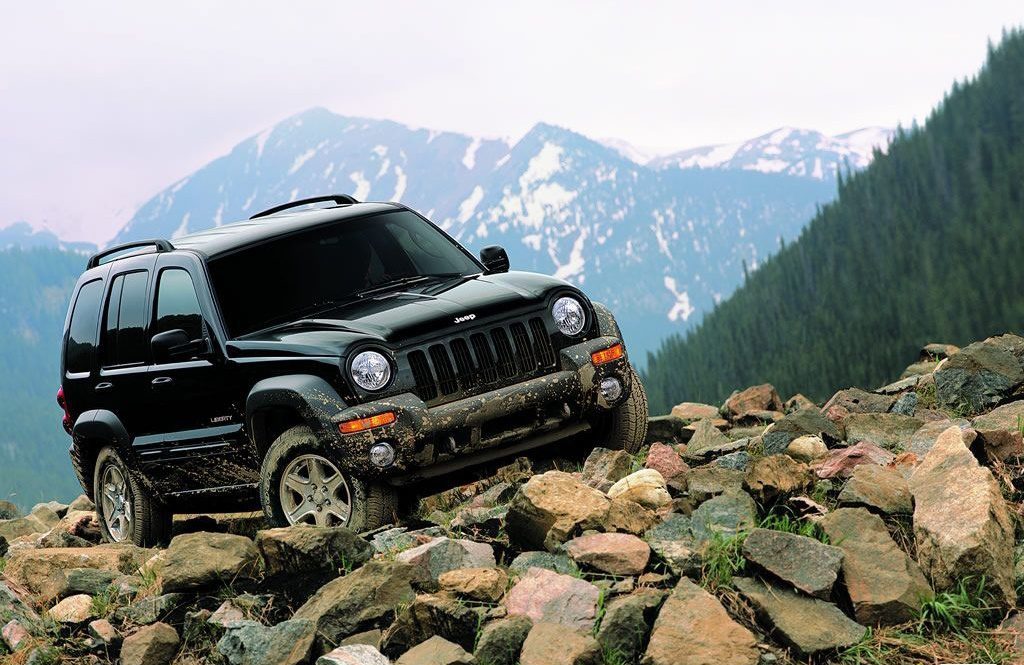The Jeep Renegade weighs around 3,200 to 3,500 pounds, depending on the trim level and options. As a subcompact SUV, its weight is relatively light compared to larger SUVs.
The design and engineering of the Jeep Renegade contribute to its agility and fuel efficiency, making it a popular choice for those seeking a versatile vehicle for both city driving and off-road adventures. With its unique blend of style and performance, the Jeep Renegade offers a compact yet capable option for drivers looking for a rugged vehicle with modern features.
Whether tackling urban streets or rough terrains, the Jeep Renegade’s weight plays a key role in its overall performance and handling.
Table of Contents
ToggleJeep Renegade Weight
When it comes to the weight of vehicles, it’s important to consider different factors, such as curb weight, gross vehicle weight rating (GVWR), and payload capacity. The Jeep Renegade is no exception, and understanding its weight specifications can provide valuable insights for potential owners. Let’s take a closer look at the Jeep Renegade’s weight and what these different measurements mean.
Curb Weight
The curb weight of a vehicle refers to the weight of the vehicle without any passengers, cargo, or additional modifications. It is essentially the weight of the empty vehicle as it is driven off the dealership lot. In the case of the Jeep Renegade, its curb weight varies depending on the specific trim level and optional features. On average, the curb weight of a Jeep Renegade ranges from around 3,140 to 3,532 pounds.
Gross Vehicle Weight Rating (GVWR)
The Gross Vehicle Weight Rating (GVWR) is the maximum weight that a vehicle is legally allowed to weigh when fully loaded with passengers, cargo, and additional modifications. It includes the vehicle’s curb weight and its payload capacity. For the Jeep Renegade, its GVWR typically falls between 4,508 and 5,005 pounds, depending on the chosen trim level and optional features.
Payload Capacity
The payload capacity of a vehicle refers to the maximum weight of passengers and cargo that it can safely carry. In the case of the Jeep Renegade, its payload capacity typically ranges from around 925 to 1,460 pounds, depending on the specific trim level and optional features. It’s important to remember that payload capacity includes not only passengers but also any additional cargo or modifications.
By understanding these different weight measurements, potential Jeep Renegade owners can make informed decisions about their vehicle’s capabilities. Whether it’s for everyday commuting or outdoor adventures, knowing the weight specifications of the Jeep Renegade can help ensure a safe and enjoyable driving experience.

Factors Influencing Weight
An important aspect to consider when determining the weight of a Jeep Renegade is the factors influencing weight:
Engine Options
The engine type and size significantly impact the overall weight of the Jeep Renegade.
Trim Levels And Features
Different trim levels and optional features can add to or reduce the weight of the vehicle.
Drivetrain Options
The choice of drivetrain, such as front-wheel drive, all-wheel drive, or 4×4, plays a role in the total weight of the Renegade.
Comparative Analysis
Comparative Analysis: When comparing the weight of the Jeep Renegade to other compact SUVs, it’s essential to consider the impact of weight on performance.
Jeep Renegade Vs. Other Compact SUVs
Let’s take a look at how the weight of the Jeep Renegade stacks up against some other popular compact SUVs:
| SUV Model | Weight (lbs) |
|---|---|
| Jeep Renegade | 3,210 |
| Ford Escape | 3,298 |
| Honda HR-V | 3,109 |
Impact Of Weight On Performance
- Heavier SUVs may have reduced fuel efficiency due to increased weight.
- Lighter SUVs tend to have better acceleration and handling capabilities.
- Weight distribution affects how the vehicle handles corners and rough terrain.
Off-roading Considerations
The weight of a Jeep Renegade is a crucial consideration for off-roading enthusiasts. With its compact design and sturdy build, the Jeep Renegade weighs around [insert weight] which ensures stability and maneuverability on various terrains. An ideal choice for adventure seekers seeking thrilling off-road experiences.
When it comes to off-roading, weight is a crucial factor to consider. The weight of a Jeep Renegade can impact its performance and maneuverability on rugged terrains. In this section, we will explore two key aspects related to off-roading: weight distribution and its effect on maneuverability.
Weight Distribution For Off-roading
Proper weight distribution is vital for off-roading capabilities and stability. The Jeep Renegade has a balanced weight distribution, with the engine placed towards the front for optimal traction and control.
Additionally, the weight is evenly distributed between the front and rear axles, which allows the Renegade to maintain stability during steep climbs or descents. This even weight distribution contributes to the vehicle’s ability to endure rough terrains without compromising performance.
Moreover, the weight distribution of the Jeep Renegade also ensures improved traction. With a well-balanced weight distribution, each tire maintains a better grip on the ground. This enhanced traction translates to better control and maneuverability, especially when driving on slippery or uneven surfaces.
Effect On Maneuverability
When it comes to off-roading, maneuverability plays a crucial role in navigating through challenging terrains. The weight of the Jeep Renegade can affect how easily it can navigate obstacles and trails.
Due to its relatively lightweight compared to larger SUVs, the Jeep Renegade offers excellent maneuverability. Its compact design allows for easily navigating tight spaces, making it ideal for adventurous off-roaders who enjoy exploring narrow trails and dense forests.
Moreover, the lighter weight enhances the Renegade’s agility, enabling it to quickly change direction and maneuver around obstacles. This agility becomes especially valuable when encountering rocky surfaces, steep inclines, or tight turns on off-road trails.
In conclusion, the weight of a Jeep Renegade plays a significant role in its off-roading capabilities. With a balanced weight distribution and lightweight design, the Renegade provides improved stability, better traction, and exceptional maneuverability. These factors make it an excellent choice for enthusiasts who seek thrilling off-road adventures without compromising on performance and control.

Regulatory And Safety Implications
When considering the weight of a vehicle like the Jeep Renegade, it’s important to take into account the regulatory and safety implications. Understanding these aspects can provide valuable insights into the vehicle’s performance and environmental impact.
Mpg Ratings And Emissions
One of the regulatory considerations for the weight of the Jeep Renegade is its impact on fuel efficiency and emissions. The weight of a vehicle can influence its MPG ratings and emissions, affecting its environmental footprint. It’s essential for drivers to be aware of how the weight of the Renegade can impact its fuel efficiency and emissions performance.
Crash Test Performance
Another critical safety implication of the weight of the Jeep Renegade is its crash test performance. The vehicle’s weight plays a significant role in its ability to withstand and mitigate the impact of a collision. Understanding how the Renegade’s weight contributes to its crash test performance is crucial for ensuring driver and passenger safety.
Modifications And Aftermarket Additions
When it comes to owning a Jeep Renegade, many drivers are eager to customize their vehicles to suit their personal preferences and driving needs. Modifications and aftermarket additions not only enhance the aesthetics and functionality of the vehicle but also have a potential impact on its weight and overall performance.
Impact On Weight Distribution
Adding aftermarket modifications to a Jeep Renegade can have a significant impact on its weight distribution. Upgrading the vehicle with items such as heavy-duty bumpers, winches, or roof racks can contribute to an increase in the vehicle’s overall weight. These additional components may shift the weight distribution of the vehicle, potentially affecting its handling and stability on the road.
Legal Implications
When considering modifications and aftermarket additions to a Jeep Renegade, it is important to be mindful of the legal implications associated with these alterations. Exceeding the manufacturer’s specified weight limits through aftermarket additions could potentially lead to legal repercussions in terms of vehicle safety and compliance with regulations.
Frequently Asked Questions For (How Much Does A Jeep Renegade Weigh)
How Much Does A Jeep Renegade Weigh?
The curb weight of a Jeep Renegade ranges from 3,236 to 3,532 pounds, depending on the model and options.
What Is The Maximum Payload Capacity Of A Jeep Renegade?
The maximum payload capacity of a Jeep Renegade is around 1,341 pounds, allowing for ample cargo and gear.
What Is The Towing Capacity Of A Jeep Renegade?
The Jeep Renegade has a towing capacity of up to 2,000 pounds, making it suitable for towing smaller trailers and equipment.
How Does The Weight Of The Jeep Renegade Affect Its Performance?
The weight of the Jeep Renegade contributes to its stability and off-road capability, providing a balanced and agile driving experience.
Conclusion
The weight of a Jeep Renegade is a crucial factor to consider when purchasing or upgrading this versatile vehicle. Knowing its weight is essential for ensuring safe driving, proper loading, and potential modifications. By understanding the Jeep Renegade’s weight, you can make informed decisions regarding towing capacity, fuel efficiency, and overall performance.
So, whether you’re a Jeep enthusiast or someone interested in buying this vehicle, knowing how much it weighs is key.





